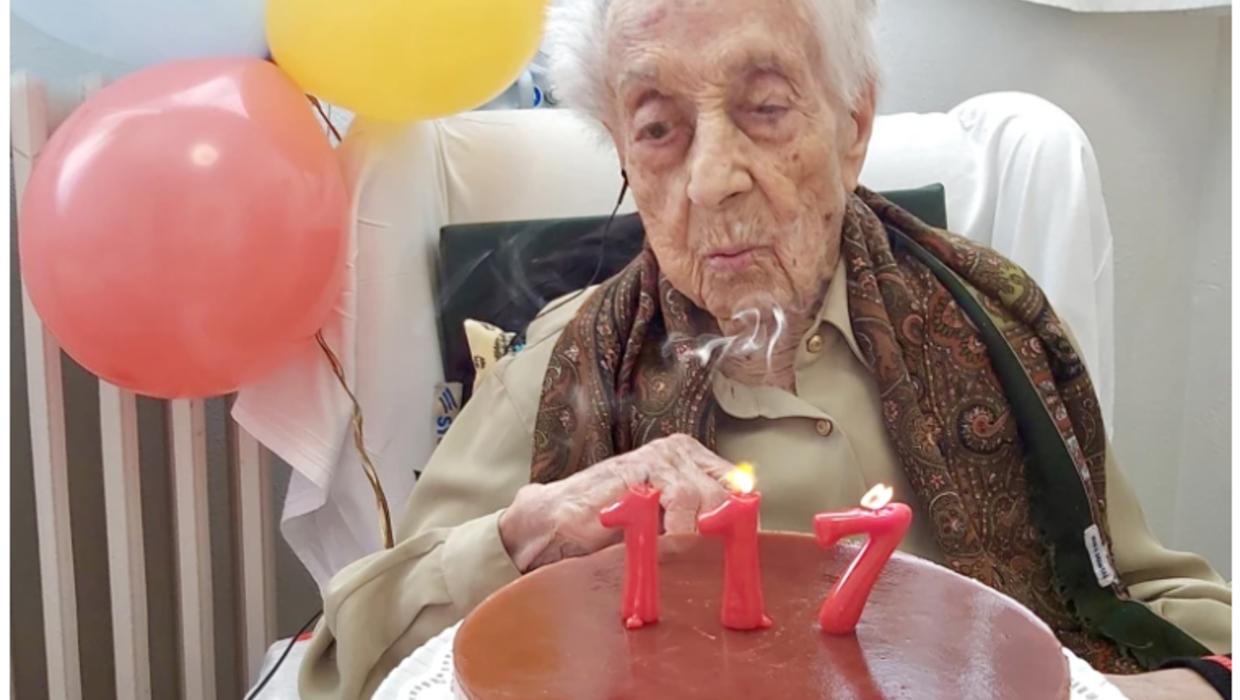Science
Researchers Uncover Secrets to Longevity from 117-Year-Old Woman

A recent study focusing on the world’s oldest woman, Maria Branyas Morera, who celebrated her 117th birthday on March 4, 2023, offers valuable insights into longevity and healthy aging. Conducted by researchers from the University of California, Berkeley, the study highlights factors that may contribute to exceptional lifespan and well-being, which could provide guidance for future generations.
The research draws attention to several key elements in Branyas Morera’s life. Born in the United States but living in Spain since childhood, she has experienced a multitude of historical events that shaped the world. Her life story reflects resilience, adaptability, and social connectivity, which researchers believe play a significant role in her extraordinary longevity.
One prominent factor identified is Branyas Morera’s strong social ties. The study emphasizes the importance of community and relationships in maintaining mental and emotional health as people age. Family gatherings and regular interactions with friends have kept her engaged and socially active, which experts suggest may be crucial in mitigating feelings of isolation often faced by the elderly.
Nutrition also plays a vital role in Branyas Morera’s longevity. Throughout her life, she has adhered to a largely Mediterranean diet, rich in fruits, vegetables, whole grains, and healthy fats. This diet is known for its potential benefits to heart health and cognitive function, aligning with current medical understanding of healthy dietary practices.
Additionally, the researchers note that Branyas Morera possesses a positive outlook on life, which can contribute to both mental and physical health. Her ability to maintain a sense of humor and optimism, even in challenging times, exemplifies the psychological resilience associated with a longer lifespan.
The study’s findings were published in the latest edition of the Health Journal, underscoring the significance of lifestyle factors in achieving longevity. According to lead researcher Dr. Jane Thompson, “Maria’s life offers a unique perspective on the interplay between genetics, environment, and lifestyle in the quest for a longer life.”
While genetic factors undeniably contribute to longevity, this research suggests that lifestyle choices may hold the key to extending life expectancy. The insights gathered from Branyas Morera’s experiences could inform future public health initiatives aimed at improving the quality of life for older adults.
As the global population of centenarians continues to grow, understanding the lessons learned from Branyas Morera’s life becomes increasingly relevant. Researchers hope that by examining the lives of individuals who have reached such remarkable ages, they can identify actionable strategies for promoting healthy aging in the wider population.
In conclusion, the study of Maria Branyas Morera not only sheds light on the secrets of living well into one’s hundreds but also emphasizes the importance of community, nutrition, and a positive mindset. As more people reach advanced ages, the findings could serve as a guide for enhancing the health and happiness of future generations.
-

 World3 months ago
World3 months agoTest Your Knowledge: Take the Herald’s Afternoon Quiz Today
-

 Sports3 months ago
Sports3 months agoPM Faces Backlash from Fans During Netball Trophy Ceremony
-

 Lifestyle3 months ago
Lifestyle3 months agoDunedin Designers Win Top Award at Hokonui Fashion Event
-

 Sports3 months ago
Sports3 months agoLiam Lawson Launches New Era for Racing Bulls with Strong Start
-

 Lifestyle3 months ago
Lifestyle3 months agoDisney Fan Reveals Dress Code Tips for Park Visitors
-

 World3 months ago
World3 months agoCoalition Forms to Preserve Māori Wards in Hawke’s Bay
-

 Health3 months ago
Health3 months agoWalking Faster Offers Major Health Benefits for Older Adults
-

 Politics3 months ago
Politics3 months agoScots Rally with Humor and Music to Protest Trump’s Visit
-

 Top Stories3 months ago
Top Stories3 months agoUK and India Finalize Trade Deal to Boost Economic Ties
-

 World3 months ago
World3 months agoHuntly Begins Water Pipe Flushing to Resolve Brown Water Issue
-

 Entertainment3 months ago
Entertainment3 months agoExperience the Excitement of ‘Chief of War’ in Oʻahu
-

 Science3 months ago
Science3 months agoNew Interactive Map Reveals Wairarapa Valley’s Geological Secrets









